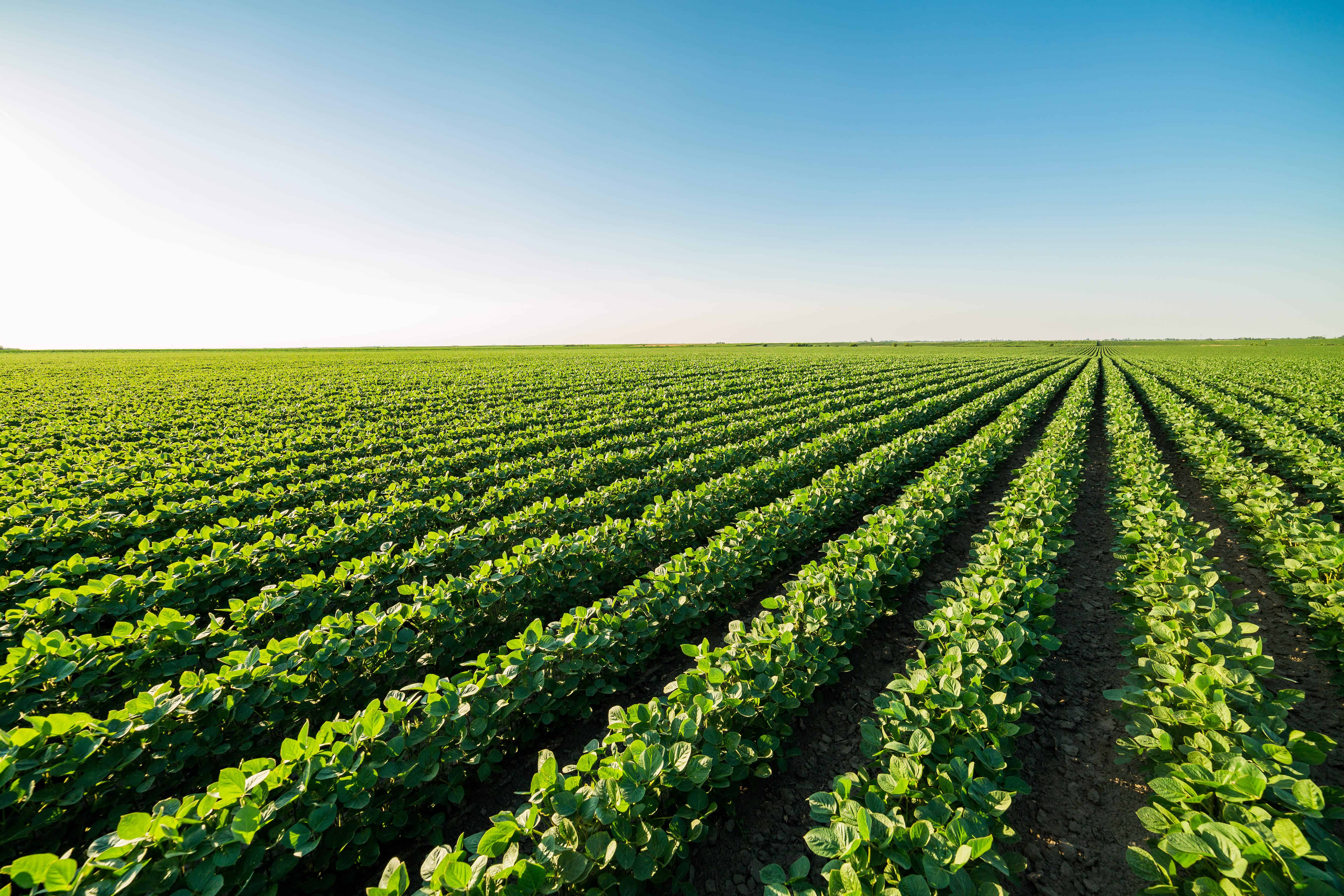Paul Shapiro is the CEO of The Better Meat Co, producer of ‘Rhiza’ mycoprotein for blended products which recently received FDA no-questions GRAS approval. In 2018, he wrote the book Clean Meat, on the then-burgeoning subject of what was then called clean or lab-grown meat and now commonly known as cultivated meat.
In this piece, which Shapiro fully acknowledges will be controversial and is certain to ruffle feathers, he puts forth the notion that organic agriculture may in fact be more detrimental to the environment than conventional. The following are the views of the author and do not necessarily reflect those of the publication.
Is organic agriculture worse than conventional for the environment and animals?
By Paul Shapiro
When I was 15, I harbored certain notions of what life on a local, organic, plant-based farm would look like, leading me to take a low-level job working at one in Clarksburg, Maryland. Growing primarily vegetables and flowers for wealthy families to buy at nearby farmers’ markets, I was intrigued by the idea of a farm that would be both organic and didn’t raise animals. It didn’t take long for me to learn that an organic, plant-based farm wasn’t as animal-friendly as I’d imagined.
One of my first learnings was that organic doesn’t mean pesticide-free. Instead, it just means that different kinds of pesticides can be used. As well, while we didn’t farm living animals there, animal products were ubiquitous. Since organic farms can’t use human-made nitrogen as a fertilizer, one of my least enviable tasks was to regularly apply fishmeal, bonemeal, bloodmeal, and manure to the crops to ensure they had the nutrients they needed to grow.
I remember feeling like Seymour in Little Shop of Horrors as I bathed the zinnias and zucchinis in animal blood. Seymour’s line — ”What do you want from me, blood?” — was hardly comical fiction in my world.

What’s the deal?
Fast forward 30 years, and I still work in agriculture, though primarily indoor microbial agriculture. Yet as an animal advocate for more than 30 years, I’ve long wondered if organic plant farming was actually better for animal welfare and our environment than conventional plant farming.
Admittedly, the standards for raising farmed animals organically at least include some animal welfare rules. But it’s important to remember that plant agriculture—organic or not—still has an impact on animals. So which has a heavier impact?
To answer this question, it’s helpful to remind ourselves of some basic facts about the USDA Organic Program:
- Organic standards allow pesticides. The organic program simply prohibits human-made pesticides. The fact that there are “natural” pesticides is irrelevant to their safety.
- Organic does not allow human-made fertilizer, meaning organic farmers instead use all manner of slaughter byproducts as fertilizer, including bloodmeal, bonemeal, fishmeal, and manure.
- Organic yields are typically lower than conventional farm yields, meaning that more land is needed to grow the same amount of food, i.e., more deforestation.
As environmentalist and author Hannah Ritchie writes, “The common perception that organic food is by default better, or is an ideal way to reduce environmental impact is a clear misconception. Across several metrics, organic agriculture actually proves to be more harmful to the world’s environment than conventional agriculture.”
Similarly, environmental researcher and plant-based food advocate Nicholas Carter cautions, “I generally agree that organic crop standards often incentivize worse outcomes (both wildlife welfare and many environmental metrics).”
Let’s address each of the above three points in turn.

Pesticides kill, organic or not
There’s no doubt that pesticides can be dangerous. This is true regardless of whether they’re human-made or not. As the University of New Hampshire notes, “Just like synthetic pesticides, organic pesticides are formulated to kill. Even if the active ingredients come from a natural source, they are at much higher concentrations than they would ever be found in nature.”
In other words, just because a pesticide is found in nature doesn’t make it safe.
The good news for consumers is that both organic and conventional crops generally have much lower levels of pesticide residue than what’s legally considered as safe.
Smuggling synthetic nitrogen through animals
Organic farms aren’t allowed to use human-made fertilizer (nitrogen) on their crops, forcing them to typically rely on animal-based nitrogen such as manure, bloodmeal, bonemeal, and fishmeal. As one example from Global Marketing Insights, “rising awareness and adoption of organic farming practices contribute to the demand for blood meal as an organic fertilizer.”
Agricultural economist Jayson Lusk writes, there’s a “lack of understanding of the critical reliance of organic on animal agriculture. One of the best ways I’ve heard it described is that organic smuggles in synthetic nitrogen through livestock manure.”

Why smuggling? In short, the manure placed on the organic crops came from animals who were fed crops grown with synthetic nitrogen. In other words, the origin of the nitrogen is still synthetic; it just first passed through the digestive tract of a farmed animal.
To further the point, Hannah Ritchie writes her book, Not the End of the World, “Organic farmers still put nutrients on their crops – often in the form of manure. This means that, unfortunately, a lot of excess nutrients from manure are simply washed away into rivers and lakes where they cause algal blooms and other imbalances in our ecosystems.” She goes on to note that a “meta-analysis showed the unanimous result that organic farming was worse for land use, and also found that organic farming was worse for the pollution of rivers and lakes.”

This isn’t to suggest that human-made nitrogen application is without its deficiencies, of course. We need to find better ways to do it, like what Pivot Bio and other companies are doing. But to suggest that using animal agriculture’s byproducts is superior to human-made nitrogen ignores the facts.
Deforestation
One of the biggest deficiencies of organic production is just how much lower yield farmers typically get. This varies by crop and region, but in general, meta-analyses show that organic crops yield about one-fifth less food than conventional, meaning you need about 20 percent more land to grow the same amount of food. Using more land for agriculture nearly always means having less land for wildlife.
As Harvard Professor Robert Paarlberg writes in his book Resetting the Table: “Trying to grow all of our food organically today would require farming a much wider area, damaging wildlife habitat.” To underscore this point, Paarlberg concludes that “replacing conventional production with organically grown crops would require cultivating an additional 109 million acres of land, an area equal to all parklands and wildlands combined in the lower forty-eight states.”

Plant-based is paramount; organic is overrated
When I was dousing animal blood on organic flowers and vegetables as a 15-year-old, I really believed that organic farming was better for the planet than conventional. Today, I wonder if that’s really true.
Is it worth it to pay more for organic produce knowing that it may not be better for the planet, and may in fact be worse? If there were truly a consumer safety concern that was unique to conventional produce, perhaps one could justify the added environmental damage. But the evidence that organically grown produce is any safer than conventional is simply lacking. What’s far more important is that we enjoy more plant-based foods, regardless of how they were grown, and if price is a concern, there’s not much compelling evidence that we should spend more on organic produce.
Admittedly, there’s a movement among a very small portion of farmers to try to grow food “veganically,” meaning without any pesticides or animal inputs. Animal advocate Nicholas Carter has visited some of these farms and came away impressed. He notes that, “even if veganic farming might slightly reduce yield relative to a similar practice but with synthetic fertilizers, the reduction in use of fossil fuels and long term preservation of soil, is worth the slight tradeoff.”

Veganic production may be a promising method of future food production, but as of today, such methods still represent less than a rounding error in the total amount of crops produced. For everyday consumers simply going to the supermarket, the choice seems pretty straightforward: it’s vastly more important to limit meat purchases and instead buy plant-based than it is to seek out “organic.”
Put another way: if the environment or animal welfare is a motivating factor for your food choices, choosing plant-based does a lot more than prioritizing organic, which might actually be worse for animals. And the good news is that unlike organic, which is more expensive and not necessarily any more nutritious anyway, choosing plant-based can be a great way to save money, especially if you’re not buying organic.
Paul is also the host of the Business for Good Podcast.





